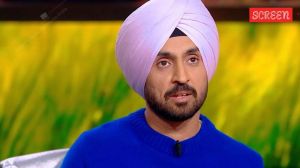India counters Japan CTBT push: Let US,China take the lead
With visiting Japanese Prime Minister Yukio Hatoyama exerting pressure on India to ratify the Comprehensive Test Ban Treaty...
With visiting Japanese Prime Minister Yukio Hatoyama exerting pressure on India to ratify the Comprehensive Test Ban Treaty (CTBT),Prime Minister Manmohan Singh on Tuesday put the onus on the US and China for taking the lead in this regard.
After his talks with Hatoyama here during which non-proliferation and civil nuclear issues were discussed,Singh said India was deeply interested in working with Japan and other like-minded countries for the cause of universal,verifiable and non-discriminatory disarmament.
Japan promised to relax curbs on hi-tech trade as the two countries sought to impart greater depth to their ties by unveiling an action plan covering defence and counter-terrorism exchanges and vowing to step up trade.
As reported by The Indian Express on Monday,the two sides also announced a security dialogue in the two-plus-two format with Defence and External Affairs Ministries being represented from both sides. They will be represented at the level of junior ministers or senior officials level.
At a joint press conference with Singh after the talks,Hatoyama said that nuclear energy would become a very important agenda for the future. Singh,on his part,assured that Indian companies would not divert imports from Japan to weapon purposes or third countries in dubious manner. On this,Hatoyama commended Indias strong determination,and said that he would ensure a positive conclusion for those instances where proper information was provided.
I expressed the hope that along with the US and China,India will sign and ratify the (CTBT) treaty. In response,Prime Minister Singh said should the US and China ratify the CTBT,a new situation will emerge, Hatoyama said of the CTBT issue,adding that I believe he has stated it as a matter of fact. We firmly have to engage in these endeavours.
Singh then referred to Indias unilaterally-declared moratorium on nuclear tests and said that is a commitment we will honour. Underlining Indias impeccable record with regard to non-proliferation,he also said he explained to Hatoyama the circumstances in which India had to go the nuclear weapon way in 1998.
Singh said the two leaders had fairly extensive discussions on prospects of civil nuclear cooperation as he referred to the waiver granted by the 45-nation Nuclear Suppliers Group to India to conduct trade in nuclear material and technology.
Sources said civil nuclear cooperation was among key issues Singh discussed with Hatoyama in wide-ranging talks. They vowed to push for an early conclusion of a comprehensive economic partnership agreement to scale up trade and investment and cooperate on a range of global issues,including the UN reforms,climate change and nuclear disarmament.
The two leaders also signed an ambitious joint declaration entitled New Stage of India-Japan Strategic and Global Partnership,which has an action plan on advancing security and counter-terror cooperation as its main theme.






- 01
- 02
- 03
- 04
- 05
























